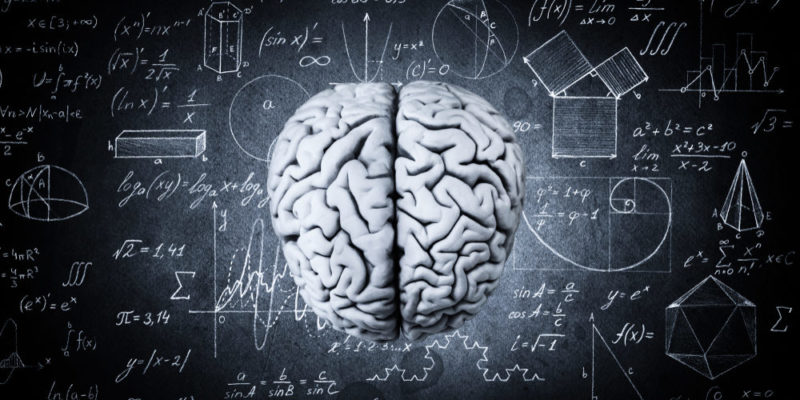We explain what human thinking is and what types of thinking exist. Furthermore, the sciences that study thought.
What is thought?
The thought It is the intellectual operation through which a person processes and organizes information . It includes all types of mental activities, such as learning, remembering, perception and decision making. Thoughts are products that the mind produces, voluntarily based on a rational order, or involuntarily through an external stimulus.
The thought processes are based on four units:
- Images. They are mental representations of a fact or an object. They are not exact copies of reality, but contain its outstanding aspects. For example, remember some details from your childhood home.
- Symbols. They are more abstract units, which represent something beyond their literal meaning, and can have several meanings. The most common symbols of thought are words. For example, the word “house” can evoke multiple meanings.
- Concepts They are the symbols that designate a class of facts and allow large amounts of information to be grouped together. For example, the word “fruits” refers to a class of items that share certain characteristics.
- Rules They are the most complex units. They state a relationship that exists between concepts. For example, “fruits fall from the tree when they are ripe.”
Thought is not only reflected in language, but at the same time shapes it. Experience and thought influence, feed and modify language, as people create words and meanings whenever they need them. For example, the word “cloud” can refer to a meteorological phenomenon or, currently, to a storage service.
Types of thinking

Thought can be presented in different ways, depending on the type of mental operation that is carried out:
- Inductive thinking. It is the one that starts from a particularity to reach a generality. If something is true on some occasions, it will be true on other similar occasions. For example: “If I taste several lemons and they are acidic, it means that all lemons are acidic.”
- Deductive thinking It is the one that starts from a generality and applies it to each particularity. A conclusion is inferred from a premise. For example: “All dogs bark, so this dog will bark too.”
- Interrogative thinking It is what is used when you have a concern. It includes the way in which the question will be presented to effectively obtain the desired answer. For example: “Why do leaves fall in autumn?”
- Creative thinking It is what is used to produce new ideas or solutions. It is flexible and original, and is characterized by having no limits. For example, modifying a recipe and creating a new dish.
- Analytical thinking. It is the one that categorizes information into concepts or premises in order to obtain a conclusion. For example, to repair a computer, the technician checks the various components until he finds the defective one and concludes that if he replaces it, the computer will work again.
- Critical thinking . It is what allows us to investigate different aspects of reality, question previous ideas and evaluate other thoughts. Ensures greater autonomy when exercising thought. For example, before spreading news, investigate its source and verify that it is real.
You may be interested in:
- Induction
- Deduction
Sciences that study thinking

Although all sciences are related and exist through thought, there are some that are particularly dedicated to studying it. The main ones are:
- Logic . It is dedicated to the study of the principles of valid reasoning. It focuses on arguments in order to establish whether an inference is correct or not. For example, formal logic approaches thoughts by taking into account how their contents are structured.
- Philosophy . It is concerned with studying fundamental questions about the origin of thought, mind, truth and knowledge. It tries to answer many questions that human beings naturally ask themselves, organizing the principles that govern knowledge. For example, epistemology is a branch of philosophy dedicated to defining the structure and limits of thought.
- Psychology It is the science that studies the human mind and its influence on behavior. It studies the cognitive and emotional processes that enable or influence thinking. For example, cognitive psychology addresses functions such as memory, attention, and information processing.
- Neuroscience It studies the nervous system and the brain, which are the biological aspects of thinking. For example, cognitive neuroscience seeks to understand the relationship between the brain and the processes involved in thinking.
- Education Studies how people learn and process information, in order to develop appropriate teaching strategies. For example, how to stimulate mathematical thinking, how to structure a study plan so that it is effective.
References
- Cardamone, R. (2004). Neuropsychology of thought: a historical-cultural approach. PsicologiaCientifica.com Magazine6(8). https://psicolcient.me
- Garrison, M. (2004). Psychology. McGraw Hill.
- Zepeda Herrera, F. (2008). Introduction to psychology. Pearson.





